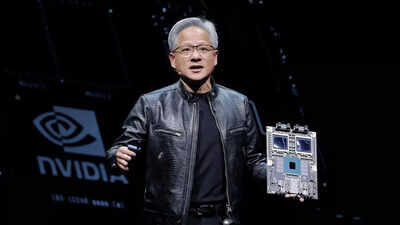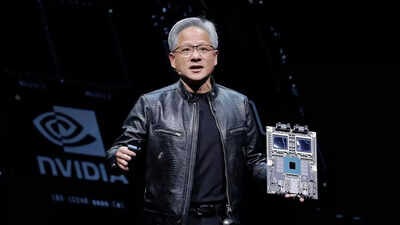Nvidia CEO Jensen Huang drops bold prediction: AI will make more millionaires in 5 years than the Internet did in 20 |

Nvidia CEO Jensen Huang has made a bold prediction: artificial intelligence will generate more millionaires in just five years than the internet did in two decades. Speaking on the All In podcast, Huang argued that AI is not just a transformative technology but a historic equalizer, lowering the barriers to innovation and empowering creators, developers, and businesses at an unprecedented scale. As the leader of Nvidia, the trillion-dollar company powering the AI boom, Huang offered insider insight into how quickly the field is moving, suggesting that those who embrace AI will thrive, while those who ignore it risk falling behind. “Everybody is an artist now. Everybody is an author,” Huang emphasized, declaring that the age of universal creativity has arrived.
Jensen Huang: AI’s economic disruption will outpace the internet boom in speed, scale, and opportunity
According to Huang, AI isn’t replacing jobs—it’s spawning entirely new industries. He believes that AI’s ability to streamline product development and eliminate complex technical barriers is enabling individuals and businesses to unlock enormous value. “AI causes people to create things that others would like to buy,” he said, positioning AI as the greatest technology equalizer of all time. In his view, this transformative shift will be even more explosive than the internet revolution.He further explained how AI collapses the boundary between creative thinking and technical execution. Where programming once required fluency in complex coding languages like C++ or Python, today, interacting with AI through natural language is enough to build, create, and innovate. “Every creative is becoming technical, and every technical is becoming more creative,” Huang said, describing this new fusion of skills as a game changer for the global workforce.
Why companies of the future will need two factories—one for products and one for AI
In Huang’s vision of the future, every company—whether in tech, manufacturing, or services—will operate two parallel engines of productivity. One will focus on traditional output such as goods or services, while the other will focus entirely on AI development. He pointed to Tesla as a leading example of this dual-model approach, with one infrastructure dedicated to car manufacturing and another to building AI systems that power autonomous driving and smart operations.This AI-driven layer will not be limited to Silicon Valley giants. Huang believes it will become essential for every business seeking to stay competitive in a world increasingly defined by automation, predictive analytics, and digital intelligence.
The $500 billion infrastructure race to power the next AI revolution
To support this future, Nvidia is building a massive backbone of AI infrastructure. Huang revealed that the company plans to manufacture around $500 billion worth of AI supercomputers in Arizona and Texas over the next four years. These systems, he said, will serve as the engines of the AI economy, enabling trillions of dollars in industry-wide value creation.He also pointed out the extraordinary efficiency of small, highly skilled AI teams. At labs like OpenAI or DeepSeek, a team of just 150 researchers is capable of creating up to $30 billion in value—roughly $200 million per person. According to Huang, no previous industry has ever demonstrated this kind of productivity leverage.
Adapt or be left behind: why knowing AI is no longer optional
In what may be his most urgent warning, Huang emphasized that AI proficiency is now a necessity. Those who fail to incorporate AI into their workflow or business model, he cautioned, are at risk of being replaced by those who do. “Anybody who is not using AI is going to lose their job to someone who does,” he said.For Huang, the message is simple: artificial intelligence isn’t just an opportunity for innovation and wealth—it’s the new baseline for survival in the modern economy.





